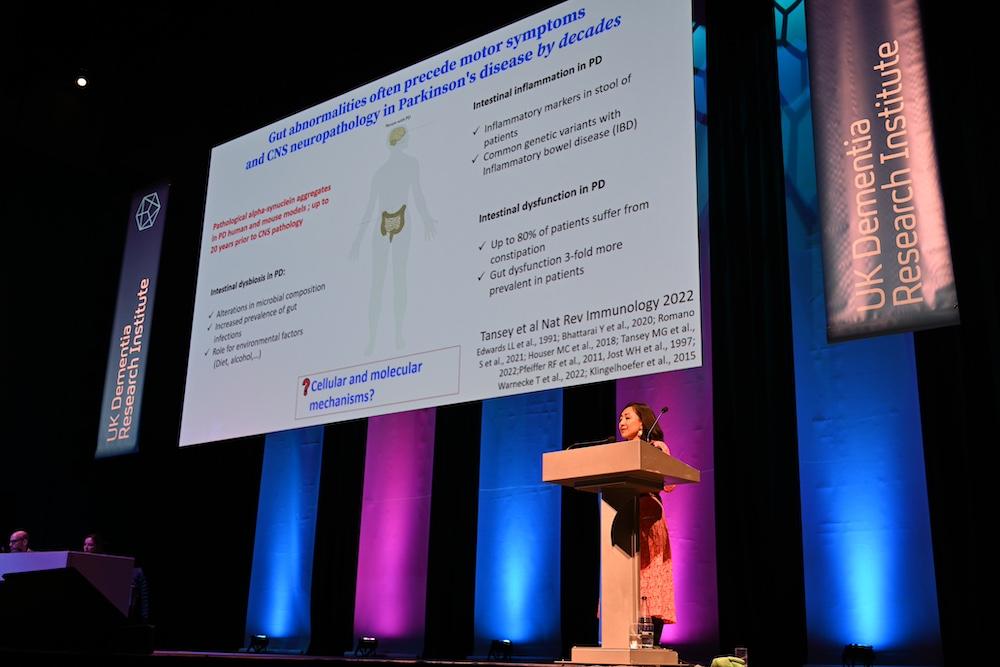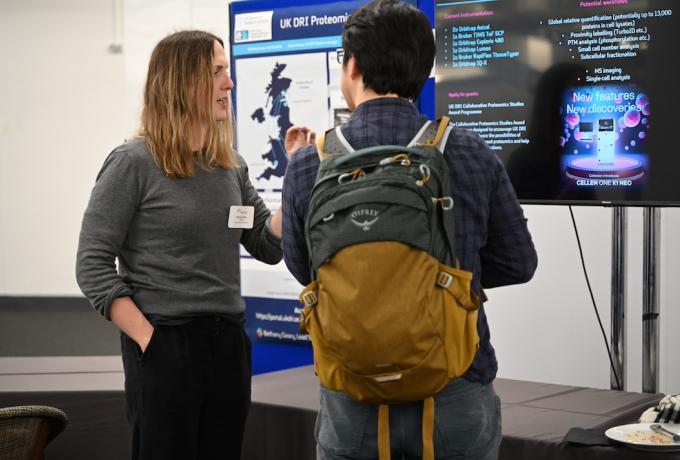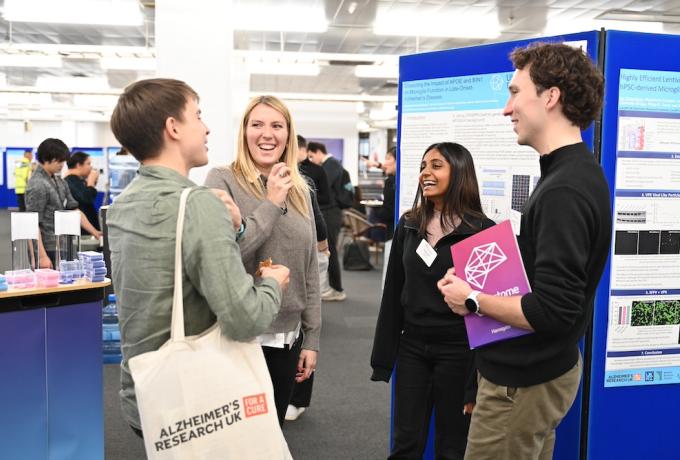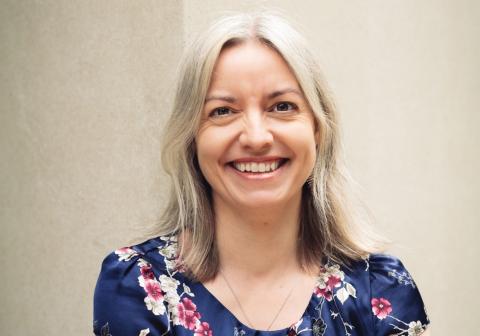Earlier this month, researchers from across our national institute gathered for the UK DRI’s annual conference, Connectome. I attended for the first time, having begun my role as UK DRI Chief Scientific Officer a few months earlier.
Over 600 of us travelled to Harrogate for three days packed full of science, networking, and connecting with colleagues. It was really inspiring to hear about the amazing breadth of science that is undertaken across the UK DRI, with real tractable impact for people with dementia and their families and carers.
Transforming lives through research
Our Director, Professor Siddharthan Chandran, kicked off the conference with an important reminder of why we do what we do. “We exist to transform, through research, the lives of people affected by or at risk of neurodegenerative conditions,” he emphasised.
Siddharthan spoke of the UK DRI vision – healthy brain ageing for all – underpinned by our mission to discover the causes of neurodegeneration, develop new tools and treatments, and deliver solutions to maintain brain health. Throughout the event, it was fantastic to hear about how we are all contributing to this mission – from fundamental, discovery science such as Dr Soyon Hong’s talk about the role of immune cells in the gut in Parkinson’s, all the way through to Professor Payam Barnaghi discussing how his lab is using artificial intelligence to transform dementia care.

Dr Soyon Hong gave a fascinating talk about the role of the gut in Parkinson's
At the heart of everything we do are the people whose lives are affected by neurodegenerative conditions, and Professor Jon Schott bought this to the fore through his powerful presentation about clinical assessment which included some moving videos of people attending his clinic with suspected neurodegenerative conditions. He spoke about what he looks for in face-to-face consultations, and the need for blood biomarkers to complement clinical assessment tools.
Championing future leaders
Connectome is an opportunity for UK DRI researchers and technologists at all careers stages to share their work. I was particularly impressed by the early career researchers (ECRs) who took to the stage to discuss their science.
PhD student Áine Heffernan (Selvaraj/Chandran Labs) gave an excellent talk about her research into the cross-talk between neurons and glial cells, in the context of LRRK2, a gene mutation associated with an increased risk of Parkinson’s. And postdoctoral researcher Dr Abidemi Otaiku (Scott/Sharp Labs) gave a fascinating talk about his research into the slowing of brain activity, recorded via EEG (electroencephalogram), as a biomarker of ageing. I’m proud to be part of an organisation that nurtures and champions the next generation of leaders in neurodegeneration research.
Beyond the scientific talks, there were also over 200 scientific posters. Looking around the poster hall, it was fantastic to see so many people engaged in conversation about their science, or learning about someone else’s poster. I wish I could’ve made it to every poster and the ones I visited were extremely impressive! For the first time this year, there was also a special SkillsXchange zone in the poster hall, showcasing specialist scientific techniques, and encouraging skill sharing and learning from peers and colleagues.


The annual Recognition Prizes, including a poster prize, were awarded to some extremely well-deserved nominees. We were pleased to launch two new categories this year, a PhD Prize celebrating the outstanding achievements of doctoral researchers, and a Discovery Prize recognising ECRs who have made ground-breaking discoveries in their research. Congratulations to all the winners!
World-leading keynote speakers
We were also fortunate to hear keynote talks from two world-leading, award-winning researchers. Dr Michel Goedert (MRC Laboratory of Molecular Biology) shared his revolutionary work using cryo-electron microscopy to determine the first high resolution structures of toxic protein filaments from human brains. Professor Ulrich Hartl (Max Planck Institute of Biochemistry) discussed his research, focusing on the role of chaperones in protein folding in health and disease.
The recently appointed Director of our new BHF-UK DRI Centre for Vascular Dementia Research, Professor David Attwell, gave an engaging talk highlighting the role of the vascular system in dementia. It was also great to hear from esteemed scientist and former Director of the UK DRI, Professor Bart De Strooper, who rounded off the event with a presentation on critical inflection points in the course of Alzheimer’s disease.
Conclusions
Some refer to Connectome as the ‘beating heart of the UK DRI’, and having now attended my first, it’s plain to see why. I left the event with a renewed sense of hope for the future of neurodegeneration research, in the hands of our brilliant UK DRI community.
The conference demonstrated to me the incredibly high calibre and broad scope of research being undertaken by all UK DRI researchers – and how all are working to discover, develop, and deliver, to help us reach our vision of healthy brain ageing for all and transforming the lives of people at risk of, and those living with, dementia and neurodegenerative conditions and their families and carers.

